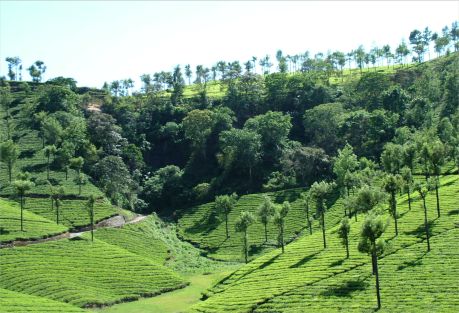
Western Ghats: Biodiversity hotspot
•
Write the author
•
Environment
•
Karnataka
•
Send to a friend
•
Printer friendly version
![]() The mountains, gorges and slopes of the Western Ghats continue to be among the
world's biodiversity hotspots despite unprecedented ecological decline. Of
India's 15,000 plant species there are 4,050 plants found in 17,000 sq.kms strip
of forests in these ghats. There are 121 species of frogs and toads, 508 bird
species, six types of turtles and terrapins, 87 species of snakes, 63 types of
lizards and a variety of large mammals such as elephants, wild bisons, black
panthers and leopards.
The mountains, gorges and slopes of the Western Ghats continue to be among the
world's biodiversity hotspots despite unprecedented ecological decline. Of
India's 15,000 plant species there are 4,050 plants found in 17,000 sq.kms strip
of forests in these ghats. There are 121 species of frogs and toads, 508 bird
species, six types of turtles and terrapins, 87 species of snakes, 63 types of
lizards and a variety of large mammals such as elephants, wild bisons, black
panthers and leopards.

Watershed forests
The Western Ghats are the major watersheds for the important southern rivers such as Kavery, Nethravathi, Sharavathi and Tungabhadra. Population increase, political apathy, big hydel projects and lack of environmental consciousness are contributing to their degradation. Conservation of these forests is vital to meet local needs as well as national aspirations of keeping the river flow intact. Towards this goal the work of reviving the small streams and river catchments and restoring them with tree cover to ensure sustained flow in the rivers is a must.
Diagnosing development
Despite deep-rooted ecosystems and cultural diversity across the Western Ghats, the menu of developmental interventions has been on predictable lines. Although several initiatives have proven successful at grassroots level, the same havent contributed to alter the big picture of destruction. There is an immediate need to rewrite the ecological idiom and enlarge the scope of engagement in making a renewed case for the Western Ghats.
The report has been published by Prakruti, Hulemalgi Brothers, Chowkimath, Sirsi, Uttara Kannada - 581401, Karnataka.
























